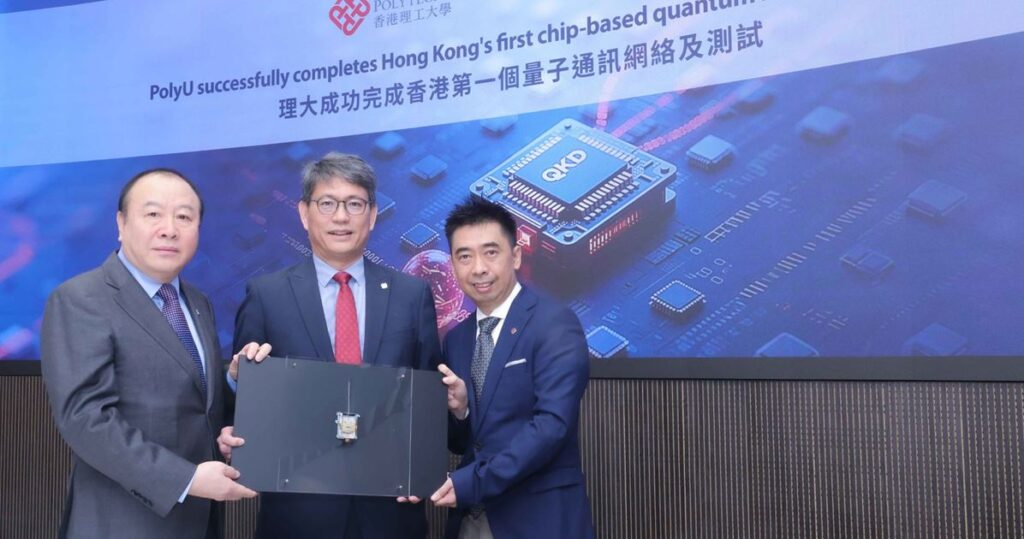
The Hong Kong Polytechnic University (PolyU) has achieved a significant milestone by successfully completing Hong Kong’s first chip-based quantum communication network. The project, which includes a successful cybersecurity test, is built on a quantum chip platform and spans approximately 55 kilometers, connecting multiple nodes across Hong Kong, Kowloon, and the New Territories.
This initiative aligns with China’s strategic priorities outlined in the country’s 15th Five-Year Plan, highlighting quantum technology as a key area for industrial development. Quantum technology is increasingly recognized as a transformative force in various sectors, including computing, cryptography, and secure communications. The implications of quantum advancements are profound, as they have the potential to disrupt current encryption methods used in financial transactions and data privacy.
Under the guidance of Prof. Ai-Qun Liu, who serves as the Director of the Research Institute for Quantum Technology (RIQT) and is also a Chair Professor of Quantum Engineering, PolyU’s research team has developed a compact quantum communication chip. Prof. Liu noted, “Our quantum communication encryption is grounded in the principles of quantum mechanics: since quantum states cannot be cloned, it is theoretically almost impossible to crack.” This innovation aims to enhance the security of Hong Kong’s digital financial ecosystem, reinforcing its status as a major international financial hub.
HKCOLO.NET, a data center, provided the optical fiber network for the project, which facilitated the successful transmission of securely encrypted messages. The network connects four key nodes, including PolyU and other institutions, enabling the team to conduct a quantum-encrypted transmission test. During the trial, the quantum chip operated at a clock rate of 1.25 GHz, generating high-quality quantum-encoded signals with remarkable stability. This allows for secure key generation at a rate of 45.73 kbps, supporting reliable encrypted communications over distances exceeding 100 kilometers.
The quantum chip’s design not only prioritizes performance but also adaptability. It can dynamically respond to environmental changes, such as temperature fluctuations and vibrations, ensuring stable connections essential for commercial deployment. Prof. Liu emphasized that the team’s approach offers several advantages over traditional solutions, including enhanced speed, stability, lower costs, and scalability for mass production.
In light of the rapid advances in quantum technology, Prof. Christopher Chao, Senior Vice President for Research and Innovation at PolyU, highlighted the urgent need for financial centers to respond proactively to potential cybersecurity threats posed by quantum computing. He stated, “As Asia’s leading international financial centre, Hong Kong must anticipate the threat posed by quantum computing and prepare ahead of time.” This project not only addresses a strategic priority of the 15th Five-Year Plan but also supports Hong Kong’s Innovation and Technology Development Blueprint, which emphasizes advanced manufacturing and microelectronics.
Looking forward, Prof. Liu reaffirmed the commitment of the RIQT to refine and scale the multipoint transmission technology, leveraging existing network infrastructure. This initiative aims to facilitate the widespread adoption of quantum communication across various sectors, helping Hong Kong transition to next-generation smart quantum networks. By enhancing cybersecurity measures, this advancement positions the city to meet the challenges of an evolving technological landscape and secure its economic future.
As quantum technology continues to advance, the successful implementation of this quantum communication network represents a critical step for Hong Kong in safeguarding its financial systems and enhancing its position as a global innovation hub.







